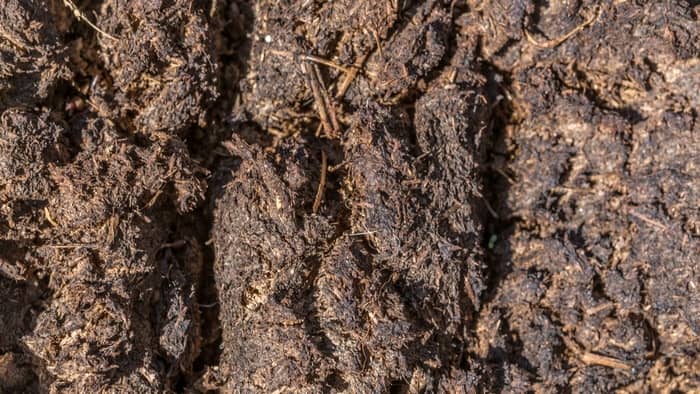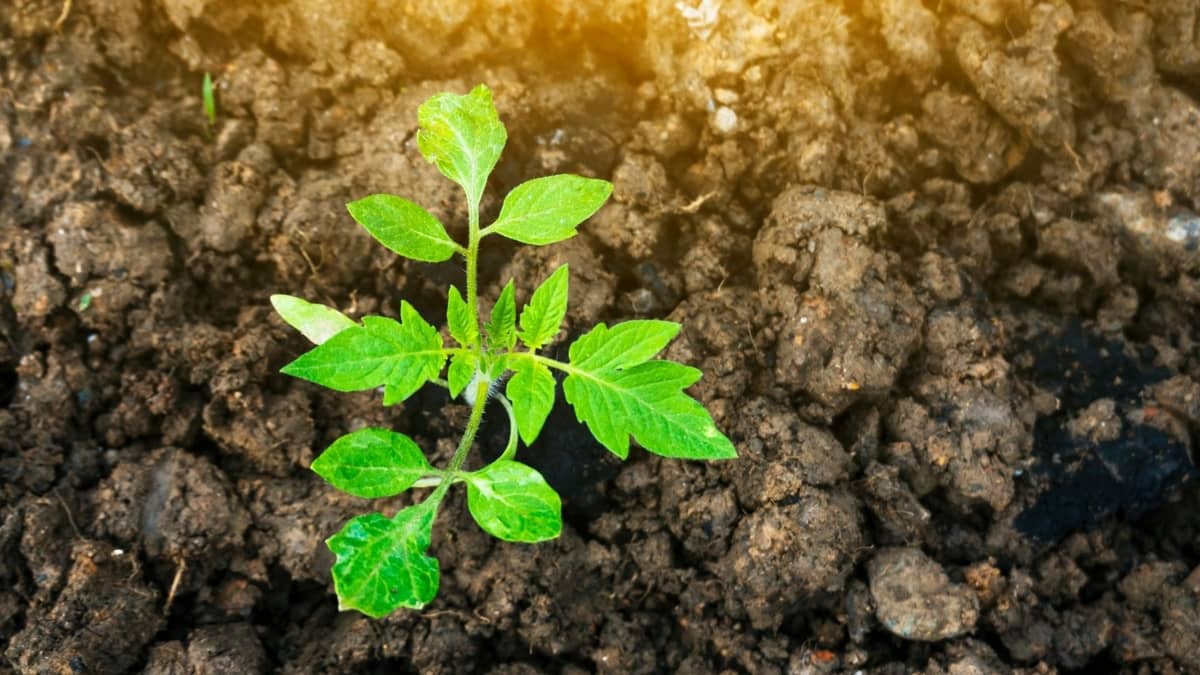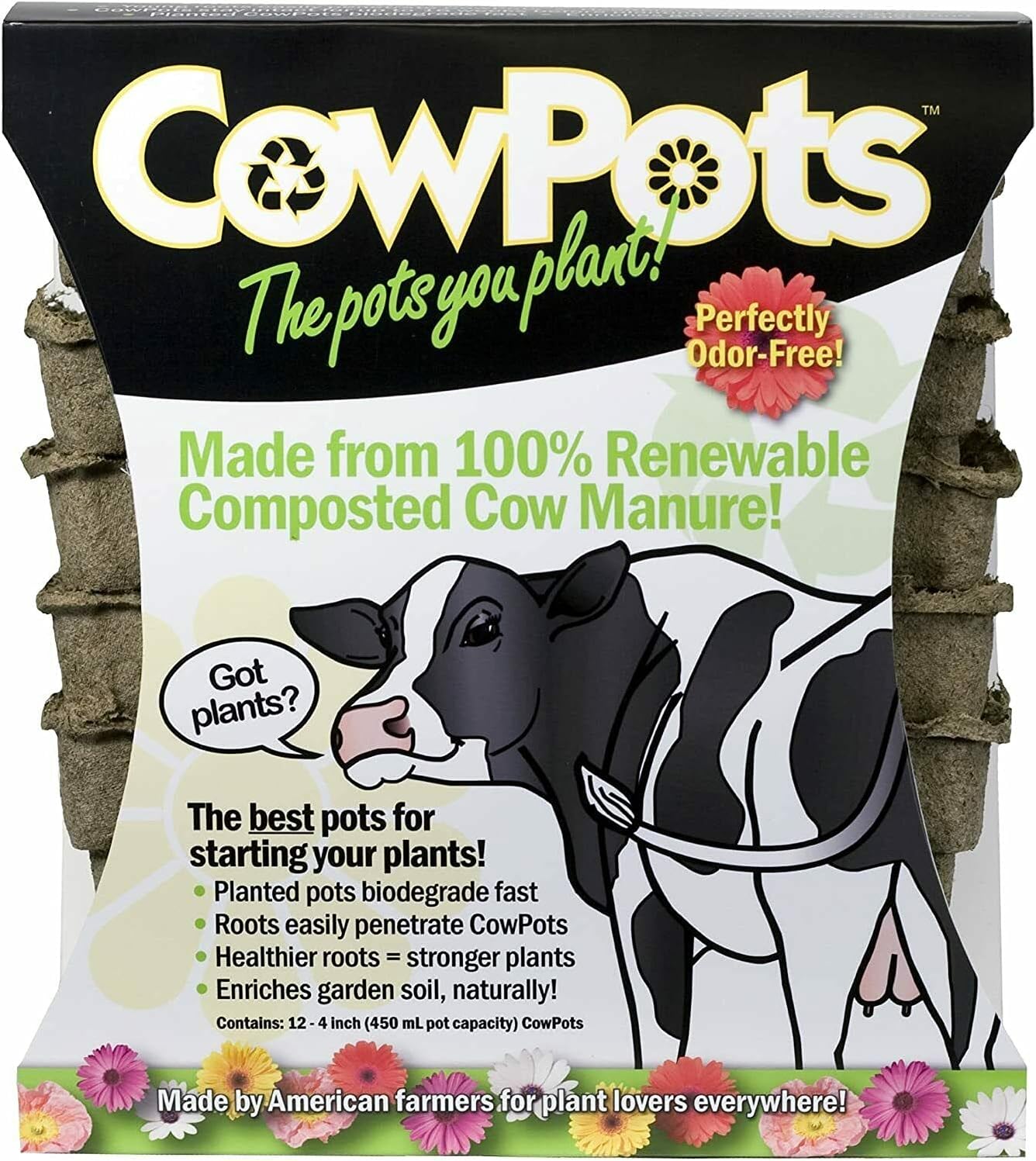Last Updated on August 29, 2022 by Griselda M.
Is cow manure good for tomatoes acting as organic fertilizer and at what stage should it be added to the soil? Cow manure is commonly used in gardening as an organic fertilizer. In this article, we will answer the question: “Is cow manure good for tomatoes?” It is important to know that in any gardening or farming project, you have to add some kind of fertilizer such as manure or another type to achieve your objectives.
Manure has many functions such as a source of nitrogen (N), phosphorus (P), and potassium (K) but if you use too much fresh manure, you can burn your plants due to an oversupply of nutrients. Luckily tomatoes are heavy feeders, hence your chances of burning them with manure are very low. That is why you need to add manure to the soil and use it properly so you can get the most out of it. You can use manure as fertilizer at different stages of growth.
I typically have a method I have developed where I make big ridges in the garden. I put “hot manure” that is fresh between the plants in the deep trenches between rows. This method works well to stop burning tomatoes and also helps the plants with drainage.
With this method you can really put a lot of manure into the soil and build your soil up – when the growth cycle of the plants is over, your mix the ridge of soil with the composted manure row, and then your soil for the next crop is very enriched and healthy.
If you have weathered cow manure, this is less “hot” with nitrogen and will not burn your plants as much. Dig it into the soil, plant the plants and you can mulch around your tomatoes every three weeks with a pound or two of manure per plant.
Is Cow Manure Good For Tomatoes?

Cow manure is a great soil amendment because it contains nitrogen, phosphorus, and potassium. It also has a lot of organic matter. However, if you want to use it for tomatoes then you need to understand the nutrients and how they interact with one another.
Manure contains nitrogen, phosphorus, and potassium as well as trace elements. These are essential elements that are needed by plants to grow.
Nitrogen (N)
Nitrogen is an essential nutrient for plant growth. It is a macronutrient and is needed by plants to make protein.
Tomatoes are not like legumes and require nitrogen to be added to the soil. Legumes can fix their own atmospheric nitrogen using specific bacteria in their roots. Tomatoes absorb nitrogen from the soil.
In this regard, I often grow peas in winter, and then dig the pea plant material into the soil where I plant my summer tomatoes. Peas are legumes. To supplement the nitrogen in the soil further cow, or chicken manure can be added.
Phosphorus (P)
Phosphorus is another essential nutrient for plant growth. It is a micronutrient and is needed by plants to make cell walls, DNA, enzymes, energy storage molecules, and other components of the cell. Phosphorus is available from rocks, soil, and manure. Weathered cow manure is an excellent source of phosphorous as cow diets are heavily supplemented with phosphorous normally in the form of licks.
Plants absorb phosphorus through their roots.
Potassium (K)
Potassium is a micronutrient. It helps control the water content in plants and also helps regulate plant growth. Potassium is abundant in the soil and is present in all living organisms. Plants absorb potassium through their roots.
How Much Cow Manure Should You Put In Your Tomatoes?
The best way to use cow manure when growing tomatoes is by adding it to the soil before planting. I add a 5-gallon bucket of manure per square yard of soil. I dig this into a depth of about ten inches. Be sure to keep some manure aside so you can add enough for a 1-2 inch layer to the top of the soil. This helps to protect the ground from drying out and also provides nutrients to the plant.
I tend to add cow manure to the soil, then mulch around the tomato plants as well using the manure. You can put a bit of leaf or lawn clipping material on top of the manure as well. If manure dries out, a lot of the nutrients become less available, hence my general experience has always been that keeping the manure mulched increases its value to your plants.
How To Grow Tomatoes Outdoors Using Cow Manure
When preparing your soil outdoors, add at least a 1-2 inch layer of cow manure to the soil. The manure will be decomposed by microorganisms and enriches the soil with nitrogen, phosphorous, and other nutrients. It is recommended that you plant your seedlings or seeds in each hole after adding the manure. This will provide each tomato plant with enough nutrients to start it off.
Manure is also a natural fertilizer that will help to keep your plants healthy and strong. Using cow manure as a fertilizer is an easy way to improve the health of your tomatoes. Tomatoes are really heavy feeders, hence once they get bigger it is actually really difficult to burn them with manure.
Some other plants can be more sensitive to manure and can get burnt if the manure is fresh. Tomatoes are not like this.
Benefits of using cow manure for your garden
-
Nutrients
Cow manure is full of nutrients. Nitrogen, phosphorous, potassium, and calcium are all in abundance in cow manure. These nutrients are needed by the plants to grow.
-
Soil structure
When applied to the soil, the manure helps to create a more stable structure for the soil. This makes the soil easier to work with. It also helps prevent erosion and helps plants to take root.
-
Water retention
The manure provides a good amount of water-holding capacity to the soil. It also helps the soil to be friable, meaning that it can easily be worked into the soil when it needs to be.
-
Soil Microbiology
Cow manure contains a healthy population of microbes from the cow’s stomach. These tend to be beneficial to soil health. The manure also provides a powerful growth stimulant for various soil fungi that can rapidly grow in the soil adding stability to your soil.
I find that if I can get old mushroom soil (rich in spores and mushroom mycelia) from a mushroom farm, and then mix this into my cow manure, in autumn when it rains and is cold I get a lot of button mushrooms fruiting in the garden – these mushrooms grow on cow manure and are delicious.
Summary – Is Cow Manure Good For Tomatoes?
Most definitely! With any new soil, I always recommend adding a large amount of manure to build the soil up over 5-8 years. After this, the soil becomes stable and needs less feeding.
Typical soils around the world have been depleted by poor practices for decades or centuries. We have to rebuild these soils by adding organic matter – cow manure and mulch are important to rebuild soils. I used to go to the local stock pens and dig manure each weekend, aiming to bring a ton of manure a week to incorporate into my garden.
I trucked 80 tons over five years, as well as incorporating about 50 tons of chicken manure and about 100 tons of garden waste (this gets dropped off by lawn companies). This has helped me build a very stable soil – the only plants I put manure on now in my garden are actually ta tomatoes and green peppers as they are heavy feeders. Pretty much every other plant seems to be able to scrounge what it needs from the soil without much help.
Frequently Asked Questions
What kind of manure is best for tomatoes?
I find there is no realy correct answer here. Any manure is good, but generally the best is to mix things up! Cow manure is good. Goat/sheep and even chicken manure are good too. Horse manure is also exceptional if you can get it. I do not use pig manure in my garden as I am scared of pathogens in it. I would advise to use a blend of manures if you can get this - but if not, use what you can get!
How do you use cow manure on tomato plants?
Dig the manure into the soil when you prepare a bed. Then plant the tomatoes and mulch around the plants with a layer about 1-2 inches thick of manure and cover this manure with leaves to prevent it drying and allow it to compost releasing nutrients that will be available to the roots of your growing tomatoes.
Will cow manure burn tomatoes?
I have never experienced this with tomatoes - even manure that is so fresh it is still green seems to be unable to burn tomatoes - I am sure if you add enough you can burn them. But if you apply common sense, you will not burn the tomatoes.
Caroline is a gardener who loves to get down to the nitty–gritty of gardening. She proudly proclaims herself as a ‘dirt worshipper‘ and can often be found deep in the garden, covered in soil and singing to her plants. As a self–proclaimed ‘plant whisperer‘, Caroline believes that plants need love and attention just like any other living thing, and she loves to give them both. When she‘s not tending to her garden, you can often find her researching the latest gardening trends, or teaching others how to make their gardens thrive


